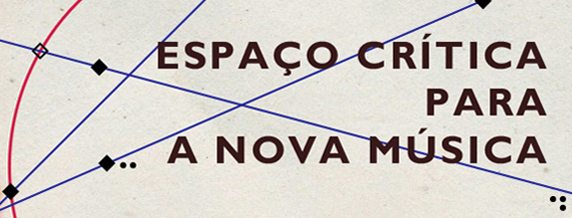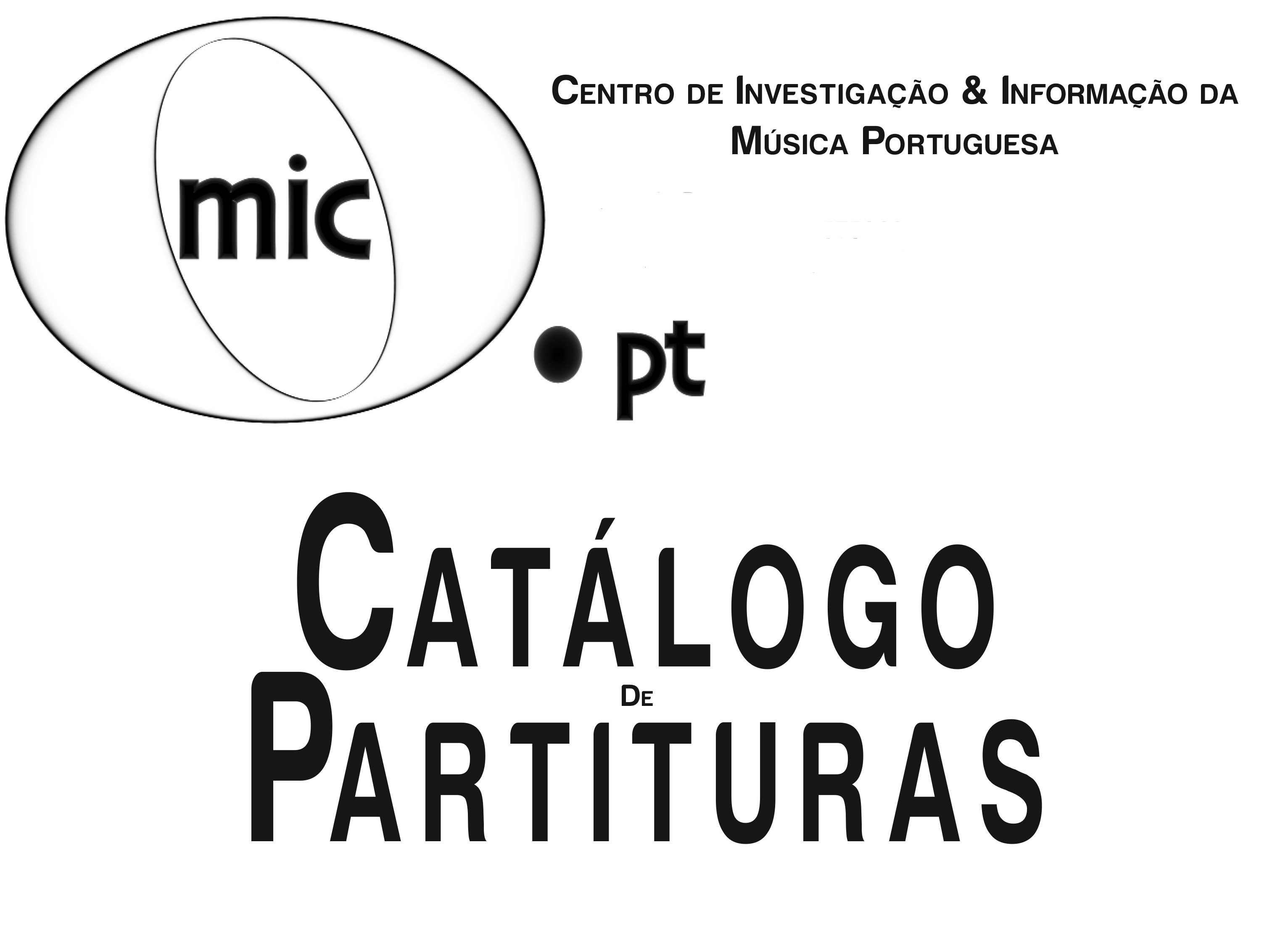“...I have always considered music, in addition to the professional aspect, a form of being in the world and trying to understand it. Music is not a mere mental tricot, an activity disconnected from everything. In music, art, science, history, philosophy and politics dialogue, as well as integrate and complete themselves.”[1]
Composer, conductor, professor and critic, Álvaro Salazar was born in Porto (1938), where he began his musical studies, which he continued at the Lisbon National Conservatory of Music. “Originating from a family where passion for music could have never signified a professional option, at least among closer relatives, I began studying piano at the age of 13, as my own choice, with a friend of the family (...). At that time I was also interested in performing classic guitar, which I started playing as autodidact in the company of some of my friends, and, soon afterwards, under the supervision of a teacher.”[2]
In 1962 Álvaro Salazar graduated from Law at the University of Lisbon, continuing later a diplomatic career, which he came to abandon in 1972. Since then, he has dedicated himself exclusively to music. He continued his academic education at the École Normale de Paris (1973-75), where he completed the Orchestra Conducting Course. His teachers outside Portugal were Gilbert Amy (Analysis), Hans Swarowsky and Pierre Dervaux (Orchestra Conducting). As scholarship holder of the Calouste Gulbenkian Foundation, he attended the Electroacoustic Music Course of the Groupe de Recherches Musicales in Paris. At the final exams of the Conducting Course at the École Normale de Paris he was attributed, unanimously, the highest classification.
In 1978 Álvaro Salazar founded and became artistic director of the Oficina Musical, an ensemble dedicated to studying and divulgation of new music. Until today the group realized hundreds of concerts, not only with its permanent members, but also with young artists at the beginning of their careers (the support of the latter has always been one of the main principles of the Oficina Musical), as well as with renowned groups and soloists.
“The great lesson of composition, which I had, was studying and analysing scores by other authors. Conducting gave me, in fact, an exceptional mean to have contact with those works – and therefore to be able to analyse, study and, above all, direct them”[3], says Álvaro Salazar in the interview given to the Portuguese Music Research and Investigation Centre in 2005. The composer had an essential role in teaching analysis, which then did not make part of the curriculum at the Portuguese Conservatories. Apart from that Álvaro Salazar was professor of Composition (ATC) and Ensemble Music (20th Century) at the School of Music of the National Conservatory, as well as taught Introduction to Electroacoustic Music, History of 20th Century Music and Aesthetics at the Superior School of Music in Porto and Lisbon.
As conductor Álvaro Salazar performed with the main Portuguese orchestras, as well as in Spain, Colombia, France, Germany and Italy. He gave first performances of various contemporary works not only in Portugal but also around the world, by such composers as Leoš Janáček, Charles Ives, Anton Webern, Heitor Villa-Lobos, Edgar Varèse, Hans Eisler, Paul Dessau, Kurt Weill, Morton Feldman, György Ligeti and Michael Finnissy, among many others. He participated, as composer and jury member, in composition competitions and as lecturer in various courses and international festivals (Brazil, Chile, Colombia, Germany, Spain, Italy and Poland). He was also present, as invited critic, at festivals in Royan, Berlin and Warsaw.
Usual collaborator of the Gulbenkian Encounters for Contemporary Music, Álvaro Salazar carried out the functions of conductor of the Estoril Festival Chamber Ensemble between 1979 and 1985. “What I did [as conductor] was programming contemporary works whenever possible (...). In spite of the resistance of orchestras and musicians who are, with rare exceptions, quite conservative.”[4]
For the services provided to the Portuguese musical culture Álvaro Salazar was honoured with the Medal of Merit (gold) of the Porto Municipality, as well as with the “Prémio Almada” of the Arts Institute (the Ministry of Culture).
During the forthcoming autumn months various ensembles and concert halls in Portugal and abroad will present works by Álvaro Salazar: the Matosinhos String Quartet will perform “Décima quinta Anotação, in memoriam Fernando Lopes-Graça” (a commission of the Matosinhos Municipality) on September 25 at the Casa da Música and on November 6 at the Teatro Nicolás Salmerón in Madrid at the concert series "Ciclo de Conciertos de Música para el Tercer Milenio"; the Música Viva 2012 Festival will highlight the composer’s work at the opening concert, on September 18 at the Small Auditorium of the Belém Arts Centre, with “Estudos Incomunicantes” I/A and I/B, which are closely interrelated – the second piece will be performed for the first time. On the following day of the Festival, Nuno Aroso, within his recital of works for percussion and electronics, will give the premiere performance of “Giuoco Piano”, a work composed by Álvaro Salazar in 2011. Furthermore on November 27 the Remix Ensemble Casa da Música, under the direction of Peter Rundel will perform for the first time the composer’s “Triplo Concerto Grosso”.
Sound Objects and Silence
Álvaro Salazar’s compositional grammar presents an appetence towards clear textures, in which one can trace “the exploration of the limits between determined and undetermined sounds, the use of silence as structural and dramatic qualities, as well as the controlled use of aleatoric techniques”[5], as in the most emblematic pieces of Witold Lutosławski. Among his principal works one can distingish such chamber pieces as “Palimpsestos”, “Ludi Officinales”, “Périplos”, “Quadrivium”, “Intermezzi” e “Taleae”, as well as orchestral scores: “Glosa e Fanfarra Sobre uma Fantasia de António Carreira” and “Tropos I”.
Álvaro Salazar emphasizes the importance of analysis in his work and career, which has constituted his great lesson of composition and which has to do with his work as conductor and musicologist. Although his catalogue (after 1965) does not contain any dodecaphonic works, one should emphasize his profound knowledge of the compositional principles of the 2nd Viennese School and its influence on his language, as well as on his manner of understanding music, of giving value to all sound objects, either tempered, non tempered sounds and noise. Among the principal influences on his musical grammar Álvaro Salazar distinguishes Edgar Varése, Luigi Nono, Franco Donatoni and Morton Feldman. “Varése is, in fact, one of my passions, a composer who dazzled with his energy, the exploration of the limits of instruments, the whole intuition of what we could already consider as sound objects, the construction in blocs, germinal melodies, etc.”[6] “From the Viennese School... obviously Webern influenced me with his economy of means, his rigour, or perhaps my temper has already been somewhat webernian... It was more this rigour of construction and of thinking, in the use of silence...”[7] “Curiously, there is an author who has marked me a lot and still continues to influence: Morton Feldman. In a way he inverts the functions of sound and silence.”[8] “At the beginning of the 70s, I was considerably influenced by an Italian composer – Franco Donatoni. I attended various Royan Festivals, where I heard some pieces, which have interested and continue to interest me for its threadlike texture and its ping-pong sound. Likewise in Italy, Luigi Nono from his last period interested and influenced me, but already in a later phase.”[9]
In 1965 Álvaro Salazar decided to destroy all the works he had presented before, starting, in a way, “from zero” in his career as composer. In this context, the series “Palimpsestos” – no. 1 for solo piano and no. 2 for solo flute – composed in that time, is informed with the remains or “quotations” from the earlier works of his catalogue. “At one point I became conscious that my earlier works, composed before 1965, were incipient, or out-dated, if not the two things at the same time. Instead of keeping «trash», I gave them a fair destiny and I admit that it was not the ultimate destruction of my life, although I think (does it seem pretentious?) that perhaps I am getting close to the moment of posing the question of Virgina Woolf: «Perhaps the time is coming, in which I will be able to bear the reading of my printed words without blushing, trembling, nor wanting to hide?»”[10]
In the exploration of “the non-tempered space or micro-chromatics generalized to the non-tempered space” (the cycle “Intradas”) Álvaro Salazar’s music presents a particular taste for textures, in which the sound is sculpted by silence, additionally pointing out the sense of multiple dialogues between electroacoustic music and the instrumental acoustic established through centuries, and at the same time affirming his incapacity to make distinction between musical sounds and noise. “A sound object, a white noise in the middle of a Mozart Sonata is obviously a noise... in a work by Emmanuel Nunes, a sequence of perfect chords, would hardly not constitute noise... In any way, my approach establishes this not very clear frontier between sound and noise or between musical sound and non tempered spaces.”[11]
Portuguese Music – “Enteral Resumption” and Perspectives
Although in the 20th century Portuguese music passed, for the sake of political and geographical situation, through periodical attempts to absorb the novelties appearing in other European countries (Álvaro Salazar calls it the eternal resumption of Portuguese music), recently the musical conditions in Portugal have been subject to profound transformations and the situation today is different. In spite of the problems, which still remain and which, in a certain way, are the reflection of the situation at the international level “there is a significant number of young authors in the composition field who are interested in a professional career, which is the result of a more actualized and dynamic teaching and, on the other hand, of the appearance of encouragement and support (competitions, scholarship grants and the politics of commissions) [although still too few], which previously were only sporadic.”[12]
The recent dynamism of the Portuguese contemporary musical area can result in the (re)establishing of a Portuguese music tradition, in which one would encounter a balance between cosmopolitism and a more national affirmation. “Perhaps it would be relevant to recall the conversations which, about these matters, I had with Jorge Peixinho, in which he expressed the conviction (the same as mine) that all the work written by a Portuguese composer contained something from our collective way of being. What? I ask. (…) What we both admitted was simply the existence of certain idiosyncratic characteristics, of compositional gestures and forms of melodic discourse, etc., which perhaps cross the music of our national authors, even if apparently more detached from our culture.”[13]
Álvaro Salazar on YouTube
“Intermezzo IV/A” (1993) Sofia Lourenço, solo piano
Auditório de Serralves, January 2011
“Acalanto para Implumes” (2006)
---
1 Interview with Álvaro Salazar in: Sérgio Azevedo, "A Invenção dos Sons. Uma Panorâmica da Composição em Portugal Hoje", Editorial Caminho, Lisbon 1998, p. 139; English translation: Jakub Szczypa
2 ibidem, p. 136
3 Interview with Álvaro Salazar conducted by Miguel Azguime;
mic.pt, 2005; English translation: Jakub Szczypa
4 ibidem
5 Tomás Henriques, "Salazar, Álvaro", in: Enciclopédia da Música em Portugal no Século XX, coordinated by Salwa Castelo-Branco, Lisbon 2010, p. 1158; English translation: Jakub Szczypa
6 Interview with Álvaro Salazar conducted by António Pinho Vargas in: Arte Musical, IV Série, n.º 2, Lisbon 1996, p. 54; English translation: Jakub Szczypa
7 Interview with Álvaro Salazar conducted by Miguel Azguime;
mic.pt, 2005; English translation: Jakub Szczypa
8 ibidem
9 ibidem
10 Interview with Álvaro Salazar conducted by António Pinho Vargas in: op. cit, p. 57; English translation: Jakub Szczypa
11 Interview with Álvaro Salazar conducted by Miguel Azguime;
mic.pt, 2005; English translation: Jakub Szczypa
12 Interview with Álvaro Salazar conducted by António Pinho Vargas in: op. cit, p. 57; English translation: Jakub Szczypa
13 ibidem, p. 66





